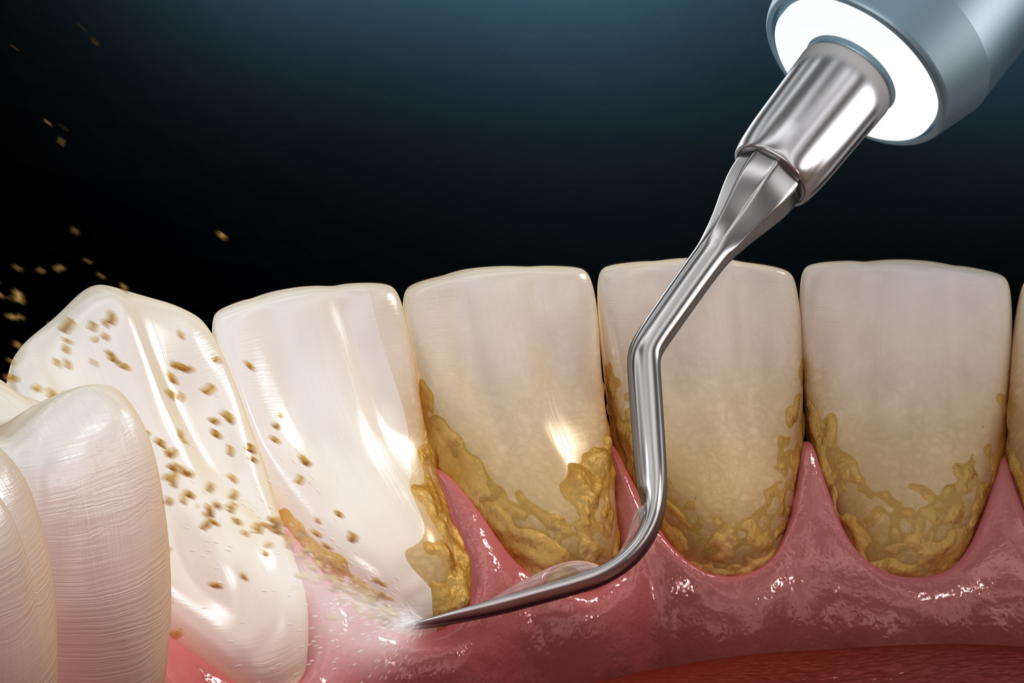
Periodontal scaling and root planing
Periodontal scaling and root planing, commonly referred to as deep cleaning, is a nonsurgical procedure used to treat gum disease (periodontitis) by removing plaque and tartar from below the gumline. It aims to clean the tooth’s root surfaces and create a smooth surface to prevent bacteria from adhering and causing further inflammation.
Before the procedure, the dentist or dental hygienist will conduct a thorough examination of the gums and may use measurements, such as probing depths, to assess the extent of periodontal disease.
In most cases, local anesthesia is administered to numb the affected area, ensuring the patient’s comfort during the procedure.
The first step involves scaling, where the dentist uses specialized instruments, such as ultrasonic scalers or hand scalers, to remove plaque and tartar deposits from the tooth surfaces and below the gumline.
Root planing follows scaling and focuses on smoothing the tooth’s root surfaces to eliminate rough areas where bacteria can easily adhere. This helps prevent the recurrence of gum disease and promotes the reattachment of the gums to the teeth.
In some cases, antimicrobial agents or antibiotics may be used to control bacteria and aid in the healing process.
Patients are provided with post-treatment care instructions, including oral hygiene practices and any prescribed medications. It is essential to follow these instructions to facilitate proper healing.
Patients typically have follow-up appointments to monitor the healing progress and assess the effectiveness of the treatment. Additional scaling and root planing sessions may be recommended if necessary.
After periodontal scaling and root planing, ongoing maintenance is crucial for managing gum disease. This often involves regular dental cleanings (periodontal maintenance) every three to four months to prevent the recurrence of plaque and tartar.
- Reduces inflammation and bleeding of the gums.
- Promotes the reattachment of the gums to the teeth.
- Helps prevent the progression of gum disease.
- Improves overall gum health and reduces the risk of tooth loss.
Periodontal scaling and root planing are effective in managing mild to moderate cases of gum disease. For more severe cases, surgical interventions may be considered. It’s essential for individuals with gum disease to seek timely treatment and maintain good oral hygiene practices to prevent further complications. Regular dental check-ups are important for the early detection and management of periodontal issues.
